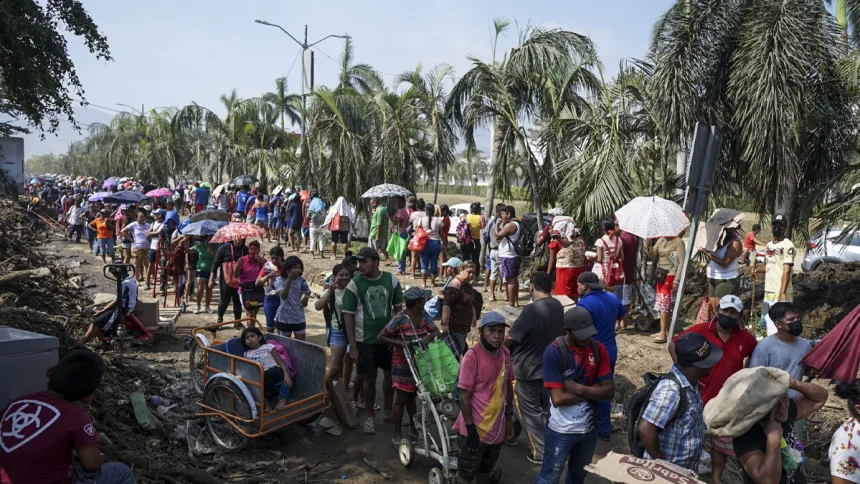November 2024- Ahead of the 2024 UN Climate Change Conference in Baku (COP-29), the World Health Organization (WHO) calls for an end to reliance on fossil fuels and advocates for people-centred adaptation and resilience.
Launching the COP29 special report on climate and health and technical guidance on Healthy Nationally Determined Contributions, WHO urges world leaders at COP29 to abandon the siloed approach to addressing climate change and health. It stresses the importance of positioning health at the core of all climate negotiations, strategies, policies and action plans, to save lives and secure healthier futures for present and future generations.
“The climate crisis is a health crisis, which makes prioritizing health and well-being in climate action not only a moral and legal imperative, but a strategic opportunity to unlock transformative health benefits for a more just and equitable future,” said Dr Tedros Adhanom Ghebreyesus, WHO Director-General. “COP29 is a crucial opportunity for global leaders to integrate health considerations into strategies for adapting to and mitigating climate change. WHO is supporting this work with practical guidelines and support for countries.”
Bold health argument for climate action
Developed by WHO in collaboration with over 100 organizations and 300 experts, the COP29 special report on climate change and health identifies critical policies across three integrated dimensions – people, place and planet. The report outlines key actions aiming to protect all people, particularly the estimated 3.6 billion people who live in areas which are most susceptible to climate change.
Also Read: New Concentration in Climate Change and Planetary Health Launched
“Health is the lived experience of climate change,” said Dr Maria Neira, Director, Environment, Climate Change and Health, WHO. “By prioritizing health in every aspect of climate action, we can unlock significant benefits for public health, climate resilience, security, and economic stability. Health is the argument we need to catalyze urgent and large-scale action in this critical moment.”
Enhanced WHO action on health and climate
Climate NDCs or Nationally Determined Contributions are national plans and commitments made by countries under the Paris Agreement. While 91% of NDCs recognize health as a priority, few specify actions to harness health benefits from climate mitigation and adaptation. Few also address protecting health from climate-related risks.
To support countries to better integrate health into their climate policies, WHO has released WHO quality criteria for integrating health into Nationally Determined Contributions: Healthy NDCs. The guidance outlines practical actions for ministries of health, ministries of environment, and other health-determining sectors (e.g. transport, energy, urban planning, water and sanitation) to incorporate health considerations within their adaptation and mitigation policies and actions.





















